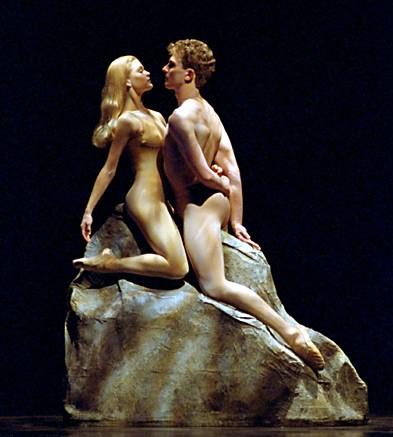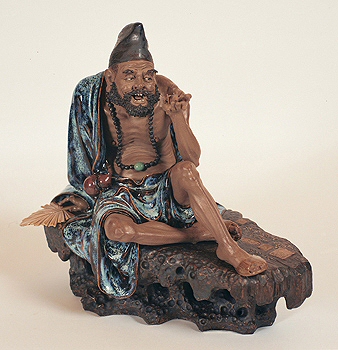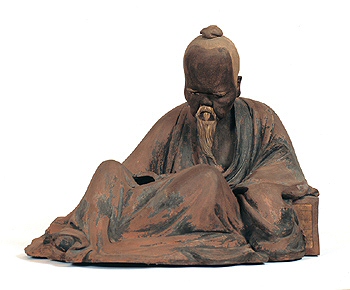Sábado, Julho 10
vou descansar uns dias!

300 posts.
3000 visitas, todas luminosas!
Obrigado. Até breve!
Deixo-vos com Fernando Pessoa..
Quinto Império
Vibra, clarim, cuja voz diz.
Que outrora ergueste o grito real
Por D. João, Mestre de Aviz,
E Portugal!
Vibra, grita aquele hausto fundo
Com que impeliste, como um remo,
Em El-Rei D. João Segundo
O Império extremo!
Vibra, sem lei ou com lei,
Como aclamaste outrora em vão
O morto que hoje é vivo — El-Rei
D. Sebastião!
Vibra chamando, e aqui convoca
O inteiro exército fadado
Cuja extensão os pólos toca
Do mundo dado!
Aquele exército que é feito
Do quanto em Portugal é o mundo
E enche este mundo vasto e estreito
De ser profundo.
Para a obra que há que prometer
Ao nosso esforço alado em si,
Convoco todos sem saber
(É a Hora!) aqui!
Os que, soldados da alta glória,
Deram batalhas com um nome,
E de cuia alma a voz da história
Tem sede e fome.
E os que, pequenos e mesquinhos,
No ver e crer da externa sorte,
Convoco todos sem saber
Com vida e morte.
Sim, estes, os plebeus do Império;
Heróis sem ter para quem o ser,
Chama-os aqui, ó som etéreo
Que vibra a arder!
E, se o futuro é já presente
Na visão de quem sabe ver,
Convoca aqui eternamente
Os que hão de ser!
Todos, todos! A hora passa,
O gênio colhe-a quando vai.
Vibra! Forma outra e a mesma raça
Da que se esvai.
A todos, todos, feitos num
Que é Portugal, sem lei nem fim,
Convoca, e, erguendo-os um a um,
Vibra, clarim!
E outros, e outros, gente vária,
Oculta neste mundo misto.
Seu peito atrai, rubra e templária,
A Cruz de Cristo.
Glosam, secretos, altos motes,
Dados no idioma do Mistério —
Soldados não, mas sacerdotes,
Do Quinto império.
Aqui! Aqui! Todos que são.
O Portugal que é tudo em si,
Venham do abismo ou da ilusão,
Todos aqui!
Armada intérmina surgindo,
Sobre ondas de uma vida estranha.
Do que por haver ou do que é vindo —
É o mesmo: venha!
Vós não soubesses o que havia
No fundo incógnito da raça,
Nem como a Mão, que tudo guia,
Seus planos traça.
Mas um instinto involuntário,
Um ímpeto de Portugal,
Encheu vosso destino vário
De um dom fatal.
De um rasgo de ir além de tudo,
De passar para além de Deus,
E, abandonando o Gládio e o escudo,
Galgar os céus.
Titãs de Cristo! Cavaleiros
De uma cruzada além dos astros,
De que esses astros, aos milheiros,
São só os rastros.
Vibra, estandarte feito som,
No ar do mundo que há de ser.
Nada pequeno é justo e bom.
Vibra a vencer!
Transcende a Grécia e a sua história
Que em nosso sangue continua!
Deixa atrás Roma e a sua glória
E a Igreja sua!
Depois transcende esse furor
E a todos chama ao mundo visto.
Hereges por um Deus maior
E um novo Cristo!
Vinde aqui todos os que sois,
Sabendo-o bem, sabendo-o mal,
Poetas, ou Santos ou Heróis
De Portugal.
Não foi para servos que nascemos
De Grécia ou Roma ou de ninguém.
Tudo negamos e esquecemos:
Fomos para além.
Vibra, clarim, mais alto! Vibra!
Grita a nossa ânsia já ciente
Que o seu inteiro vôo libra
De poente a oriente.
Vibra, clarim! A todos chama!
Vibra! E tu mesmo, voz a arder,
O Portugal de Deus proclama
Com o fazer!
O Portugal feito Universo,
Que reúne, sob amplos céus,
O corpo anónimo e disperso
De Osíris, Deus.
O Portugal que se levanta
Do fundo surdo do Destino,
E, como a Grécia, obscuro canta
Baco divino.
Aquele inteiro Portugal,
Que, universal perante a Cruz,
Reza, ante à Cruz universal,
Do Deus Jesus.
Sexta-feira, Julho 9
Temos Presidente!
E temos governo!
Já posso ir de férias..
Trilho
Gostei muito de ler as palavras da encandescente.. e pedi-lhe se as podia publicar.
Aqui ficam, com o meu agradecimento.

A luz era intensa. O dia claro e brilhante.
A pele brilhava de suor.
A claridade nas gotas que corriam e as gotas eram luz.
Ela brilhava embrulhada em gotas e prazer.
Os olhos reflectiam a luz que entrava. Iluminavam mais o dia e diziam da felicidade.
A alegria rodeava-os e era fogueira acesa.
Ateavam o prazer e ardiam em gotas de prazer, suor, alegria.
Rodavam juntos e brilhavam e o dia era brilhante e escorria amor.
As gotas colavam-nos. Eram um.
Um brilho só. Uma só luz.
E no momento do abandono, da explosão, a luz foi tão intensa que atravessou as gotas de suor e decompôs-se.
E acenderam estrelas num dia claro e brilhante.
Ela levantou a mão e as estrelas brilharam na mão.
Ele tocou-lhe a mão. Tocou as estrelas.
Ela fechou a mão e guardou-o. E guardou as estrelas entre as linhas da mão.
E em dias de solidão acende as estrelas para que ele siga o trilho, o brilho e encontre o caminho.
Aqui ficam, com o meu agradecimento.
A luz era intensa. O dia claro e brilhante.
A pele brilhava de suor.
A claridade nas gotas que corriam e as gotas eram luz.
Ela brilhava embrulhada em gotas e prazer.
Os olhos reflectiam a luz que entrava. Iluminavam mais o dia e diziam da felicidade.
A alegria rodeava-os e era fogueira acesa.
Ateavam o prazer e ardiam em gotas de prazer, suor, alegria.
Rodavam juntos e brilhavam e o dia era brilhante e escorria amor.
As gotas colavam-nos. Eram um.
Um brilho só. Uma só luz.
E no momento do abandono, da explosão, a luz foi tão intensa que atravessou as gotas de suor e decompôs-se.
E acenderam estrelas num dia claro e brilhante.
Ela levantou a mão e as estrelas brilharam na mão.
Ele tocou-lhe a mão. Tocou as estrelas.
Ela fechou a mão e guardou-o. E guardou as estrelas entre as linhas da mão.
E em dias de solidão acende as estrelas para que ele siga o trilho, o brilho e encontre o caminho.
Imprevisível Brecker

Impulse, 1986
1. Sea Glass
2. Syzygy
3. Choices
4. Nothing Personal
5. Cost of Living
6. Original Rays
7. My One and Only Love
Michael Brecker - Saxo Tenor
Jack DeJohnette - Bateria
Charlie Haden - Baixo
Kenny Kirkland - Teclas
Pat Metheny - Guitarras
Entre outras, destacam-se as colaborações com Horace Silver, John Abercrombie e Billy Cobham nos anos setenta, e mais recentemente com McCoy Tyner.
Quinta-feira, Julho 8
Sun Tzu on the Art of War
III. ATTACK BY STRATAGEM
1.Sun Tzu said: In the practical art of war, the best thing of all is to take the enemy's country whole and intact; to shatter and destroy it is not so good. So, too, it is better to recapture an army entire than to destroy it, to capture a regiment, a detachment or a company entire than to destroy them.
2.Hence to fight and conquer in all your battles is not supreme excellence; supreme excellence consists in breaking the enemy's resistance without fighting.
3.Thus the highest form of generalship is to balk the enemy's plans; the next best is to prevent the junction of the enemy's forces; the next in order is to attack the enemy's army in the field; and the worst policy of all is to besiege walled cities.

4.The rule is, not to besiege walled cities if it can possibly be avoided. The preparation of mantlets, movable shelters, and various implements of war, will take up three whole months; and the piling up of mounds over against the walls will take three months more.
5.The general, unable to control his irritation, will launch his men to the assault like swarming ants, with the result that one-third of his men are slain, while the town still remains untaken. Such are the disastrous effects of a siege.
6.Therefore the skillful leader subdues the enemy's troops without any fighting; he captures their cities without laying siege to them; he overthrows their kingdom without lengthy operations in the field.

7.With his forces intact he will dispute the mastery of the Empire, and thus, without losing a man, his triumph will be complete. This is the method of attacking by stratagem.
8.It is the rule in war, if our forces are ten to the enemy's one, to surround him; if five to one, to attack him; if twice as numerous, to divide our army into two.
9.If equally matched, we can offer battle; if slightly inferior in numbers, we can avoid the enemy; if quite unequal in every way, we can flee from him.
10.Hence, though an obstinate fight may be made by a small force, in the end it must be captured by the larger force.

11.Now the general is the bulwark of the State; if the bulwark is complete at all points; the State will be strong; if the bulwark is defective, the State will be weak.
12.There are three ways in which a ruler can bring misfortune upon his army:
(1) By commanding the army to advance or to retreat, being ignorant of the fact that it cannot obey. This is called hobbling the army.
(2) By attempting to govern an army in the same way as he administers a kingdom, being ignorant of the conditions which obtain in an army. This causes restlessness in the soldier's minds.
(3) By employing the officers of his army without discrimination, through ignorance of the military principle of adaptation to circumstances. This shakes the confidence of the soldiers.

13.But when the army is restless and distrustful, trouble is sure to come from the other feudal princes. This is simply bringing anarchy into the army, and flinging victory away.
14.Thus we may know that there are five essentials for victory:
(1) He will win who knows when to fight and when not to fight.
(2) He will win who knows how to handle both superior and inferior forces.
(3) He will win whose army is animated by the same spirit throughout all its ranks.
(4) He will win who, prepared himself, waits to take the enemy unprepared.
(5) He will win who has military capacity and is not interfered with by the sovereign.
15.Hence the saying: If you know the enemy and know yourself, you need not fear the result of a hundred battles. If you know yourself but not the enemy, for every victory gained you will also suffer a defeat. If you know neither the enemy nor yourself, you will succumb in every battle.

1.Sun Tzu said: In the practical art of war, the best thing of all is to take the enemy's country whole and intact; to shatter and destroy it is not so good. So, too, it is better to recapture an army entire than to destroy it, to capture a regiment, a detachment or a company entire than to destroy them.
2.Hence to fight and conquer in all your battles is not supreme excellence; supreme excellence consists in breaking the enemy's resistance without fighting.
3.Thus the highest form of generalship is to balk the enemy's plans; the next best is to prevent the junction of the enemy's forces; the next in order is to attack the enemy's army in the field; and the worst policy of all is to besiege walled cities.

4.The rule is, not to besiege walled cities if it can possibly be avoided. The preparation of mantlets, movable shelters, and various implements of war, will take up three whole months; and the piling up of mounds over against the walls will take three months more.
5.The general, unable to control his irritation, will launch his men to the assault like swarming ants, with the result that one-third of his men are slain, while the town still remains untaken. Such are the disastrous effects of a siege.
6.Therefore the skillful leader subdues the enemy's troops without any fighting; he captures their cities without laying siege to them; he overthrows their kingdom without lengthy operations in the field.

7.With his forces intact he will dispute the mastery of the Empire, and thus, without losing a man, his triumph will be complete. This is the method of attacking by stratagem.
8.It is the rule in war, if our forces are ten to the enemy's one, to surround him; if five to one, to attack him; if twice as numerous, to divide our army into two.
9.If equally matched, we can offer battle; if slightly inferior in numbers, we can avoid the enemy; if quite unequal in every way, we can flee from him.
10.Hence, though an obstinate fight may be made by a small force, in the end it must be captured by the larger force.

11.Now the general is the bulwark of the State; if the bulwark is complete at all points; the State will be strong; if the bulwark is defective, the State will be weak.
12.There are three ways in which a ruler can bring misfortune upon his army:
(1) By commanding the army to advance or to retreat, being ignorant of the fact that it cannot obey. This is called hobbling the army.
(2) By attempting to govern an army in the same way as he administers a kingdom, being ignorant of the conditions which obtain in an army. This causes restlessness in the soldier's minds.
(3) By employing the officers of his army without discrimination, through ignorance of the military principle of adaptation to circumstances. This shakes the confidence of the soldiers.

13.But when the army is restless and distrustful, trouble is sure to come from the other feudal princes. This is simply bringing anarchy into the army, and flinging victory away.
14.Thus we may know that there are five essentials for victory:
(1) He will win who knows when to fight and when not to fight.
(2) He will win who knows how to handle both superior and inferior forces.
(3) He will win whose army is animated by the same spirit throughout all its ranks.
(4) He will win who, prepared himself, waits to take the enemy unprepared.
(5) He will win who has military capacity and is not interfered with by the sovereign.
15.Hence the saying: If you know the enemy and know yourself, you need not fear the result of a hundred battles. If you know yourself but not the enemy, for every victory gained you will also suffer a defeat. If you know neither the enemy nor yourself, you will succumb in every battle.

::: os abutres
andam a pairar sobre a zona ocidental de Lisboa..
Deixa-os poisar..!
Deixa-os poisar..!
Quarta-feira, Julho 7
A essência do Mal

William Blake
The Great Red Dragon and the Woman Clothed in Sun
c. 1806-1809 / Watercolor / 34.3 x 42 cm
Brooklyn Museum, New York
Terça-feira, Julho 6
The requested URL could not be retrieved
Isto está a tornar-se insuportavelmente irritante!
beijo terno

Amo o amor que se reparte
em beijos, leito e pão.
Amor que pode ser eterno
mas pode ser fugaz.
Amor que se quer libertar
para seguir amando.
Amor divinizado que vem vindo,
Amor divinizado que se vai.
Pablo Neruda
Segunda-feira, Julho 5
Orgulho sem preconceito!
Domingo, Julho 4
Até os comemos!
SALADA GREGA
Ingredientes:
1 dente de alho
1 pimento verde grande
1 cebola grande
1/2 pepino
2 tomates
2 colheres de sumo de limão
1/2 colher de chá de sal
1/2 colher de chá de açúcar
4 colheres de sopa de óleo
150 gr de queijo de ovelha fresco
50 gr de azeitonas pretas
1 pitada de oregãos
Manjericão fresco
Confecção:
Descasque o dente de alho e esfregue com ele uma saladeira.
Corte o pimento ao meio, ao comprido, e retire as sementes e as peles brancas.
Lave e seque as metades e corte-as em tiras.
Descasque as cebolas e corte-a em rodelas finas.
Lave e seque o pepino, corte-o em 4, ao comprido, e depois, em cubos grandes.
Lave e seque os tomates, corte-os em 4, retire o pedúnculo e depois, corte-os transversalmente, em pedaços mais pequenos.
Na saladeira, bata o sumo de limão com o sal e o açúcar.
Junte o óleo.
Coloque o pimento, o pepino, os tomates e a cebola na saladeira e misture com cuidado. Corte o queijo fresco em cubos médios, polvilhe com oregãos e junte, com as azeitonas, à restante salada.
Tape a saladeira e deixe em repouso uns 20 minutos, em temperatura ambiente.
Lave e seque o manjericão, retire-lhe os talos e corte algumas das folhas em tiras.
No momento de servir, polvilhe a salada com as tiras de manjericão e coloque as folhas inteiras a decorar.

Para acompanhar, talvez uma sangria de champanhe..!
Ideal para um fim de tarde quente como o de hoje!
Para ir saboreando antes da FESTA, independentemente do resultado!

VAMOS A ELES!

Ingredientes:
1 dente de alho
1 pimento verde grande
1 cebola grande
1/2 pepino
2 tomates
2 colheres de sumo de limão
1/2 colher de chá de sal
1/2 colher de chá de açúcar
4 colheres de sopa de óleo
150 gr de queijo de ovelha fresco
50 gr de azeitonas pretas
1 pitada de oregãos
Manjericão fresco
Confecção:
Descasque o dente de alho e esfregue com ele uma saladeira.
Corte o pimento ao meio, ao comprido, e retire as sementes e as peles brancas.
Lave e seque as metades e corte-as em tiras.
Descasque as cebolas e corte-a em rodelas finas.
Lave e seque o pepino, corte-o em 4, ao comprido, e depois, em cubos grandes.
Lave e seque os tomates, corte-os em 4, retire o pedúnculo e depois, corte-os transversalmente, em pedaços mais pequenos.
Na saladeira, bata o sumo de limão com o sal e o açúcar.
Junte o óleo.
Coloque o pimento, o pepino, os tomates e a cebola na saladeira e misture com cuidado. Corte o queijo fresco em cubos médios, polvilhe com oregãos e junte, com as azeitonas, à restante salada.
Tape a saladeira e deixe em repouso uns 20 minutos, em temperatura ambiente.
Lave e seque o manjericão, retire-lhe os talos e corte algumas das folhas em tiras.
No momento de servir, polvilhe a salada com as tiras de manjericão e coloque as folhas inteiras a decorar.

Para acompanhar, talvez uma sangria de champanhe..!
Ideal para um fim de tarde quente como o de hoje!
Para ir saboreando antes da FESTA, independentemente do resultado!

VAMOS A ELES!

